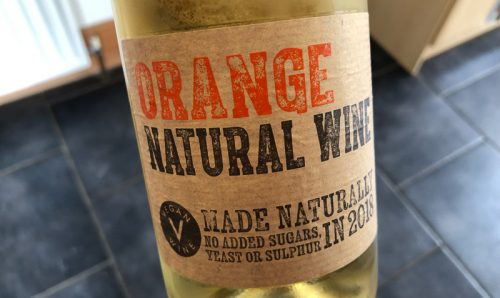
Cramele Recas is a large winery in Romania well known for its astutely made commercial wines. Last year they began making an affordable orange wine, and this, the second vintage, is on the shelf at £6 in Asda (a UK supermarket). It spends 20 days on skins, and has no added sulfites.
I’m impressed by it, and it’s a remarkable deal at this price. Is it going to win over existing natural wine fans? Probably not: they won’t particularly like the fact that this is just one wine coming from a large, commercial cellar, rather than being the philosophy of the whole winery. But it might open up the eyes of regular consumers to these two categories of wines: orange and natural (the two often go together, but they aren’t the same, of course).
Orange Natural Wine 2018 Timisului, Romania
12.5% alcohol. A blend of Chardonnay, Feteasca Alba, Sauvignon Blanc and Tamioasa Romaneasca from sustainably farmed vineyards. This is made with native yeasts and no added sugar or sulfur dioxide. A yellow gold in the glass, it has rich pear and peach aromas, with some citrus brightness. The palate is lively with zesty citrus fruit, some table grapes, a twist of apple, some creamy hints and some peachy richness. There is a bit of structure here, but the tannins add to the perception of brightness. It’s a really lovely wine with lots of flavour but also freshness. 89/100 (£6 Asda)
Hi Jamie, thanks for the post. I am intrigued by your idea that ‘the tannins add to the perception of brightness’. I found the same idea being used to describe 2018 Bordeaux that had very low acidity but somwhow tasted bright (they didn’t to me).
Is there evidence of how we taste tannin, so that it gives characteristics more often associated with acidity?
I think even the natural wine absolutists you’re talking about would be pleased if it turns more of the market on to natural wines and, in turn, has more producers consider making the full conversion.